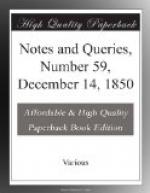V. The house must be left clean and without fire, to avoid conflagration; it is forbidden to leave rooms or windows opened, as the house has been lately damaged by the winds, snow, sand, &c. &c.; the aforementioned A.D., M.N. are imputed of negligence and malice: persons neglecting to execute the above article will be severely punished, and are obliged to pay damages and expences.
VI. As soon as the traveller returns at Nicolosi, either to S. Nicolo l’Arena, will immediately deliver the key to M.G., as it commonly happens that foreigners are waiting for it. A certificate must be likewise delivered, declaring that the afore-mentioned regulations have been exactly executed. It is likewise proper and just to reward M. Gem. for the expense of moveables, money, &c, &c., and for the advantage travellers may get to examine the Volcan, for better than Empedocli, Amodei, Fazelli, Brydon, Spallanzani, and great many others. M. Gemm. has lately been authorized to deny the key whenever is unkindly requested. He is also absolutely obliged to inform the gen. of the army, who is determined to punish with rigour their insolence.”
Mount Sinai.—(On the fly-leaf of the travellers’ book.)
“Here in too were inscribed as in one legend, all whose in the rule of the year come from different parts, different cities and countries, pilgrims and travellers of any different rank and religion or profession, for advise and notice thereof to their posterity, and even also in owr own of memory acknowledging. 1845, Mount Sinai.”
VIATOR.
[Footnote 1: The name of this gentleman will be recognised by some of the readers of NOTES AND QUERIES as that of a most indefatigable explorer of the wonders of the mountain, and the author, in the Transactions of the Catanian Academy., of excellent descriptions of its recent eruptions.]
* * * * *
FOLK LORE.
May-dew.—Every one has heard of the virtues of “May-dew,” but perhaps the complex superstition following may be less generally known. A respectable tradesman’s wife in this town (Launceston) tells me that the poor people here say that a swelling in the neck may be cured by the patient’s going before sunrise, on the 1st of May, to the grave of the last young man who has been buried in the church-yard, and applying the dew, gathered by passing the hand three times from the {475} head to the foot of the grave, to the part affected by the ailment.[2] This was told me yesterday in reply to a question, whether the custom of gathering “May-dew” is still prevailing here. I may as well add, that the common notion of improving the complexion by washing the face with the early dew in the fields on the 1st of May extensively prevails in these parts; and they say that a child who is weak in the back may be cured by drawing him over the grass wet with the morning dew. The experiment must be thrice performed, that is, on the mornings of the 1st, 2nd, and 3rd of May. I find no allusion to these specific applications of “May-dew” in Ellis’s Brand.




